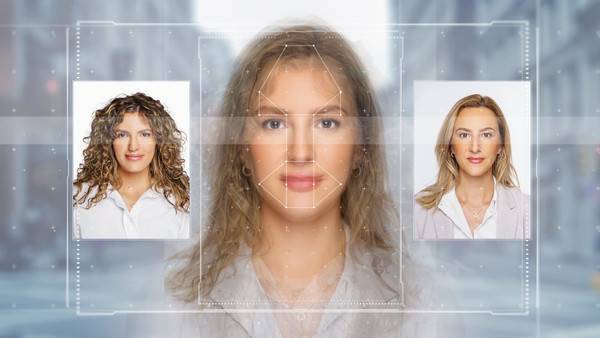
We are currently coexisting with an abundance of technology. And much of which, though invented by humans, possess capabilities beyond our own. Artificial intelligence (AI) technology stands out as a prime example. However, though technology is created for convenience, the far-reaching impacts it carries are not always positive. The Controversial Issues of articles this month discussed in this context of Deepfake technology. Due to the double-sidedness of Deepfake technology, Korean society is grappling with the dilemma of whether to restrict its usage in all fields.
Put simply, Deepfake technology is a human image synthesis technique based on AI algorithms; also known as Generative Adversarial Network (GAN). GAN involves two neural networks: a generator and a discriminator, competing and learning simultaneously. The generator creates ‘fake data’ that closely resembles the real and the discriminator distinguishes between the fake data generated by the generator and the real data. Through this endless competition, fake data becomes more sophisticated.
In Korea, the commercialization of Deepfake is in patterns of it being exploited in crimes and the government introducing regulations. One specific case involves the use of Deepfake to synthesize the faces of celebrities onto explicit content, leading to the distribution of sexually explicit material. With the increase in such crimes, the National Assembly in 2020 established legal grounds to punish those disseminating false videos using Deepfake. Deepfake was also utilized to create and disseminate fake news. During the Korean presidential election of 2022, it has been employed as strategic means to slander opposing candidates, causing confusion among the public. Hence provisions related to the use of Deepfake in the Public Official Election Act have been added by the National Election Commission.
However, it is now the period we should seek alternate ways to coexist with this new technology. For instance, China announced comprehensive regulations on the use of Deepfake. It fundamentally prohibited the use of Deepfake to produce, copy, publish, and disseminate illegal and harmful information, or to engage in fraudulent activities that forge others’ identities and damage their reputations. However, in several details, China is now exploring regulatory measures that allow for coexistence with humanity rather than outright censorship of deepfake technology itself. Consent from the subjects of videos is required if Deepfake is used for editing, and watermark symbols will be inserted into Deepfake content, enabling the tracking of originals.
As of Korea, there are scientists who argue that rather than outright banning the usage, we should also anticipate advancements in its ethical and moral dimensions. In academic journal issued by KISTI (Korea Institute of Science and Technology Information), which researches in science and technology information, Dr. Kim Jae-soo stated, "At KISTI, we will strive to build sufficient training data to address controversies surrounding the bias in artificial intelligence for making reliable AI and the coexistence of people and AI." It appears that another level of technological advancement is necessary, where AI technologies themselves can recognize and self-regulate unethical usage. The prevailing opinion suggests that proactive preemptive regulations are necessary rather than reactive post-regulatory measures which the government are currently implemeting. The regulatory approach recently adopted by China also falls under preemptive regulation. Therefore, it seems that the Korean government can clearly determine the direction of future regulation on Deepfake usage by referencing China's case.
Deepfake technology has become a ubiquitous tool utilized worldwide, as well as an unprecedented challenge. But imposing a complete ban on the commercialization of Deepfake could result in forfeiting the advantages of its usage. Approaches such as prohibiting the commercialization of Deepfake or imposing fines do not effectively prevent the negative consequences of Deepfake technology and, instead, result in the inability to harness the benefits that the technology offers. It is imperative to progress towards where humans and technology can coexist harmoniously, by observing the effects of Deepfake regulation and trying to advance ethical artificial intelligence.

